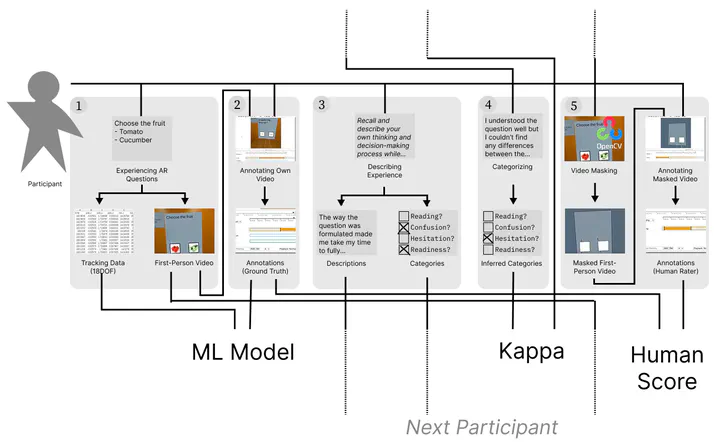[Research Paper] Understanding Cognitive States from Head & Hand Motion Data
Jan 15, 2025· ·
0 min read
·
0 min read
Kaiang Wen

Abstract
As virtual reality (VR) and augmented reality (AR) continue to gain popularity, head and hand motion data captured by consumer VR systems have become ubiquitous. Prior work shows such telemetry can be highly identifying and reflect broad user traits, often aligning with intuitive “folk theories” of body language. However, it remains unclear to what extent motion kinematics encode more nuanced cognitive states, such as confusion, hesitation, and readiness, which lack clear correlates with motion. To investigate this, we introduce a novel dataset of head and hand motion with frame-level annotations of these states collected during structured decision-making tasks. Our findings suggest that deep temporal models can infer subtle cognitive states from motion alone, achieving comparable performance with human observers. This work demonstrates that standard VR telemetry contains strong patterns related to users’ internal cognitive processes, which opens the door for a new generation of adaptive virtual environments. To enhance reproducibility and support future work, we will make our dataset and modeling framework publicly available.